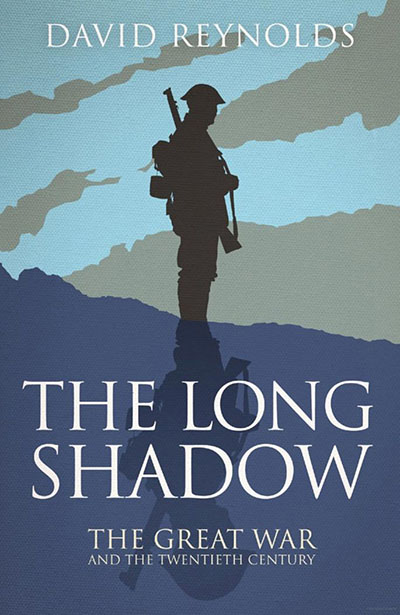
The Long Shadow
The Legacies of the Great War in the Twentieth Century
by David Reynolds. 544 pages. W. W. Norton, 2014. $32.50.
Reviewed by Dennis Showalter
Particularly for Americans, the years 1918 to 1939 are generally understood as the interwar period—a run-up to the “real” conflict that was World War II. For contemporaries, however, this was a “postwar” era, backlit by the events of 1914 to 1918. In this thought-provoking book, Reynolds, a prize-winning scholar at Cambridge University, demonstrates that though the Great War was understood as having posed a unique threat to civilization, Europe was not paralyzed by regret over it in later years. Some of that conflict’s legacies—exacerbated nationalism and an increased acceptance of violence as a domestic norm—were toxic, but others, such as the institutionalized search for peace through international organization and public rituals of memory and mourning, were positive. Reynolds argues strongly that particularly in Britain, which had been spared military invasion, economic devastation, and political revolution, the war experience was not itself seen as fundamentally negative.
While arguably overstating British exceptionalism, Reynolds is on solid ground in asserting that the central underlying issue after 1918 was a positive one: How to sustain the settlements agreed on in the Versailles peace conference. He makes a corresponding case that the eventual outcome—World War II—was a consequence of the Great War’s “long shadow,” because looking backward to the matrices of 1914 to 1918 diverted attention from such contemporary developments as ideologized diplomacy and politicized racism.
World War II led to a fundamental refocusing of perspective. Now the wars were processed symbiotically: each understood in the context of the other. On the Continent, France and Germany developed a new narrative, in which the cycle of reciprocal wars gave way to a cooperative relationship that provided the matrix for European peace and prosperity—a process that extended eastward after the implosion of the Soviet imperium. For Britain, even more than for the United States, World War II was a “good war,” unmarred by its predecessor’s ambiguities and ended by a decisive victory against an enemy whose evil was unquestionable.
Both of these constructions encourage processing World War I as a comprehensive exercise in futility. For Germany and most of Europe, the Great War’s death and destruction had been for nothing, merely prefiguring greater catastrophes. In France, defeating a brutal invader is only recently being presented as necessary and just—perhaps even heroic. In Britain sites of memory and mourning evoke continued ambivalence toward a war whose scales of death make “victory” a hollow word. Reynolds’s call to move the understanding of World War I out of the trenches and into broader contexts is a fundamental challenge as the centennial begins.
Dennis Showalter, a professor at Colorado College, writes often on military history. His most recent book is Armor and Blood: The Battle of Kursk, and he is currently writing a book on mass war.

.jpg)



